Sister Doretta with clients c.jpeg
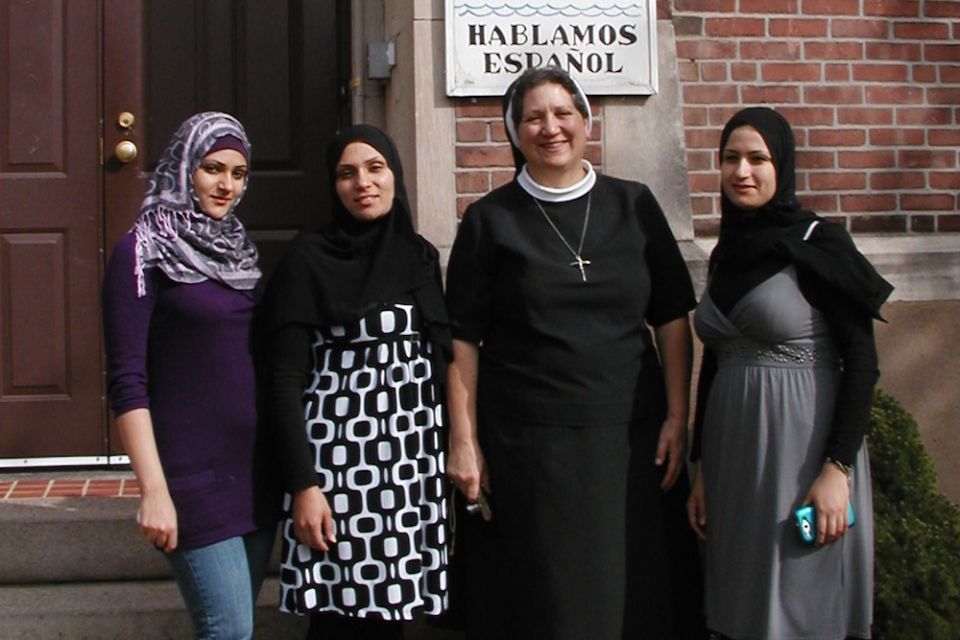
The panelists this month have lived in Ireland, India, Kenya, Pakistan, South Sudan, Uganda, Zimbabwe and the United States. They are well-qualified to comment on the question for this month:
How has being a sister helped you effectively minister among those who are non-Christian?
______
Kathryn Press is an Apostle of the Sacred Heart of Jesus from the U.S. state of Georgia. She professed her final vows in 2018. With a master of divinity degree and a background in religious studies, she has taught every grade from pre-K through high school. After opening a convent in Ireland, she taught in New York City for three years before returning to Ireland in September 2020 to work in evangelization and parish ministry.
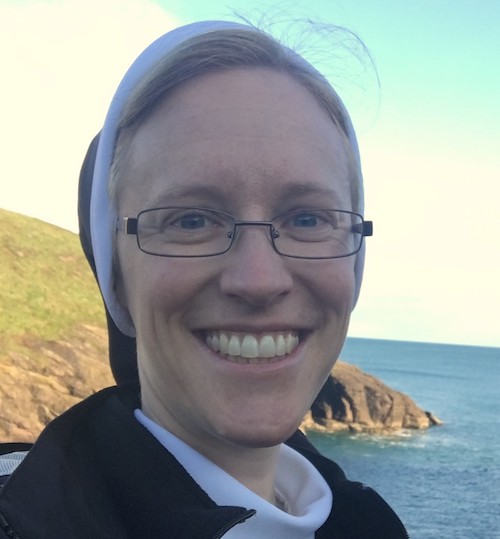 Grateful as I am to welcome in a new year, part of me will miss 2020. For the past 12 months, we daughters of Blessed Clelia Merloni celebrated a "Clelian Missionary Year." As Apostles of the Sacred Heart of Jesus, we take our call as missionaries seriously. An apostle is one who is sent. "Go into the whole world and proclaim the Gospel to every creature" (Mark 16: 15). The theme of our year, "To Love is our Mission," captures the essence of what it means to be an Apostle of Love with the mission of spreading the love of Jesus throughout the world.
Grateful as I am to welcome in a new year, part of me will miss 2020. For the past 12 months, we daughters of Blessed Clelia Merloni celebrated a "Clelian Missionary Year." As Apostles of the Sacred Heart of Jesus, we take our call as missionaries seriously. An apostle is one who is sent. "Go into the whole world and proclaim the Gospel to every creature" (Mark 16: 15). The theme of our year, "To Love is our Mission," captures the essence of what it means to be an Apostle of Love with the mission of spreading the love of Jesus throughout the world.
As consecrated women, our identity comes from who we are, not what we do. And in the same breath, as active religious, our ministry to the people of God is a concrete expression of our love for Jesus. Through our ministries, we strive to "promote a spirituality of communion" whereby the joys or sufferings of another become our own (Novo Millennio Ineunte 43). Our devotion to the heart of Christ prompts us to give a human face to the love of God. This is a universal mission. God's love isn't reserved only for Catholics or for Christians. It is for all people.
Broadly speaking, our sisters give a human face to the love of God in the areas of education, health care, pastoral and diocesan ministry, social service and human development, and foreign mission. But the nuances and daily expression of this love change based on who's before us.
Our sisters spend time learning Bengali to talk to parents when they drop off their children at school. Other sisters fast during Ramadan as an act of solidarity. Sisters working with teenagers adapt their programs to include the voices of their Buddhist and Muslim participants. Living in New York City brings an awareness of Jewish holidays and deeper union in prayer. Ministering in Taiwan means celebrating Lunar New Year, as well!
Jesus asked his followers to share the good news to every corner of the globe. Apostles of the Sacred Heart of Jesus, spiritual daughters of Blessed Clelia, do this in 14 countries today. We are witness of love to all we meet. Love is always relevant; it never grows old and is the deepest longing of the human heart.
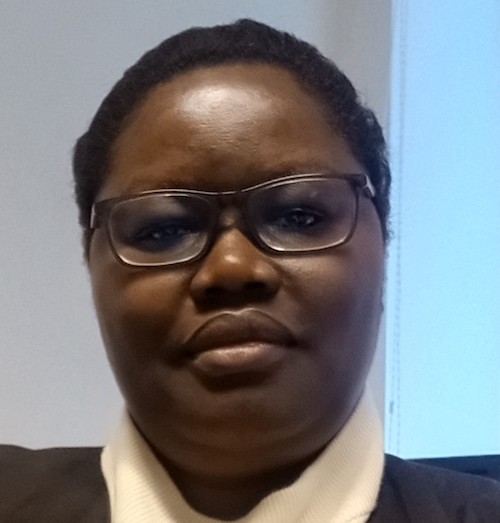 Rosemary Achien'g Oduol is a Kenyan member of the Franciscan Missionary Sisters for Africa. She has a nurse and midwife background and a graduate degree in public health. She has diverse experience in ministry, including nursing education and community nursing with HIV/AIDS patients in Kenya, Uganda and Zimbabwe. She has also worked as a CEO of a mission hospital in South Sudan and as a member of her area leadership team. Presently, she is ministering at the congregational headquarters in Ireland as assistant superior general.
Rosemary Achien'g Oduol is a Kenyan member of the Franciscan Missionary Sisters for Africa. She has a nurse and midwife background and a graduate degree in public health. She has diverse experience in ministry, including nursing education and community nursing with HIV/AIDS patients in Kenya, Uganda and Zimbabwe. She has also worked as a CEO of a mission hospital in South Sudan and as a member of her area leadership team. Presently, she is ministering at the congregational headquarters in Ireland as assistant superior general.
The convergence of nature and nurture often works toward preparing us for the inevitable. I grew up with people of different faith systems without experiencing any major issues or problems, so I am not unsettled by other religious beliefs.
Ten years ago, I registered for my nursing degree program at Aga Khan University in Kenya. Aga Khan was founded entirely by Muslims, and it was strange for a Roman Catholic nun to seek to study in an entirely Muslim environment. Some of my confreres felt uneasy about it, but it seemed to me a unique opportunity that was worth taking. The three years of study were extremely fruitful and prepared me further for living in an interfaith setting.
The charism of our congregation invites me to be a woman of faith, impelled by the love of God to approach people with reverence as I draw them to God and to a mutual discovery of who God is for us, no matter what faith we profess.
This is the crux of where my charism and my past experience converge to form me for ministry to people of other belief systems. Generally, I have lived or worked among believers of African traditional religions and Muslims, atheists and other non-Catholic Christians. These encounters have often been pleasant, and through them, I have developed profound respect for people's beliefs and faiths.
Fanatics are present within every faith system or community; history reveals some very dark chapters in the Catholic Church, too. Thanks to the guidance of the Holy Spirit, we are evolving out of certain practices that have not been compatible with the love of Christ.
Being a member of my congregation has facilitated the success of my ministry in three ways:
- It has empowered me with the cognitive ability to discern — through education, reflection and prayer — and to evaluate reality in its context through many faith encounters. To an extent, this facilitated openness between us.
- It has opened doors for me to access material resources required to support people in need regardless of their faith. Benefactors trust us with funding opportunities because of our congregation's track record. These resources have offered great leverage toward the success of our ministry among people who are socially excluded.
- While our charism is broad enough to embrace diversity among members, it also offers a supportive framework within which I minister, offering a balance that keeps me normal and human.
Ironically, there have been moments that it felt like by being a sister, I became genderless, since I had access to events that women in certain religious beliefs were not allowed to attend. But in summary: With trust, our differences grow dim, and we become more present to others in their uniqueness, including their religion.
Sister Maria & friend c.jpg
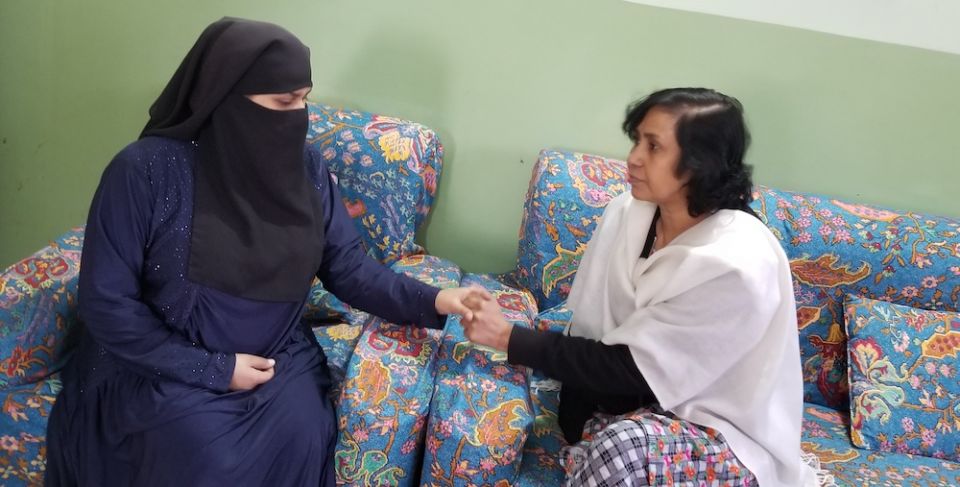
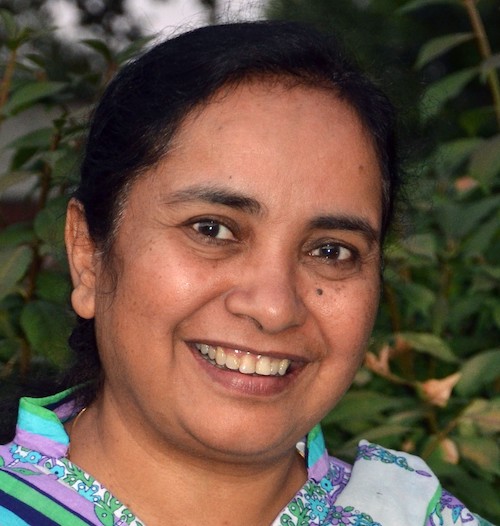 Nasreen Daniel is a member of the U.S. Sisters of Loretto from Lahore, Pakistan. She obtained paralegal training and a master's degree in English in Pakistan. Further studies in India and the Netherlands included international law and theology, social studies, counseling and religious studies. She taught in seminaries in Pakistan and in academies in the United States and was a field worker and journalist for the Society for the Protection of the Rights of the Child, a Muslim/Christian consortium. She has published in English, Urdu and Dutch. Since 2016, she has been the chairperson for Major Superiors Leadership Conference of Pakistan.
Nasreen Daniel is a member of the U.S. Sisters of Loretto from Lahore, Pakistan. She obtained paralegal training and a master's degree in English in Pakistan. Further studies in India and the Netherlands included international law and theology, social studies, counseling and religious studies. She taught in seminaries in Pakistan and in academies in the United States and was a field worker and journalist for the Society for the Protection of the Rights of the Child, a Muslim/Christian consortium. She has published in English, Urdu and Dutch. Since 2016, she has been the chairperson for Major Superiors Leadership Conference of Pakistan.
When Jesus told us to be salt of the Earth and light of the world (Matthew 5:13-16), he did not clarify which kind of salt or light we need to be. Growing up near the world's second-biggest salt mine, I experienced different colors and tastes of salt there and even more tones and textures in Karachi salt. The same could be said about light: solar, electric or oil-lamp light?
Since they were not specified, we could be rock salt or sea salt, solar light or electric light. Perhaps Jesus knew that his followers would be from different geographical settings, so he left it open for all to see which would fit their situations.
In a diverse religious society, we can't all walk using one model or road map. Countries with multiple ethnic religious groups can be lands of options as well as obstructions. First, we must meet people where they are and find common ground.
Pakistan has a very strong patriarchal society with little opportunity for women's development. "Common ground" would give feminism the right to life, education, health care, to choose a partner in life and so forth. To this end, in our slum school, Loretto educates girl children for free.
In 2019, Pakistani economist Dr. Hafiz A. Pasha said that by June 2020, 87 million people in Pakistan would be below the poverty line. Poverty cuts across all boundaries of faith, race or gender. These include the most neglected group, who build houses with poor materials in poor localities and hence fall prey to the floods every year. Good ecological practices might be a unifying factor, and missionaries can help people ask questions about the system that helps only the rich but not the marginalized.
We Loretto sisters are growing vegetables for the poverty-stricken people around our convent and are teaching them to grow vegetables in pots in their homes if they do not have ground for cultivation, showing them how to prepare soil and providing seeds and pots.
We Pakistani, irrespective of religion or ethnic background, can kill or be killed for religion. We Catholic sisters must recognize the place where the poor find solace: the Sufi shrines. Those are the places where no one asks about religious beliefs or doctrine. Convinced that we must recognize the presence of the Spirit wherever the Spirit leads, I studied the Sufi mystics.
In talking to women of all religious backgrounds, we help them to find peace and consolation in their own Sufi spirituality, which does not require much education but is based on their experiences.
"The wind blows wherever it pleases. You hear its sound, but you cannot tell where it comes from or where it is going. So it is with everyone born of the Spirit" (John 3:8).
Advertisement
Advertisement
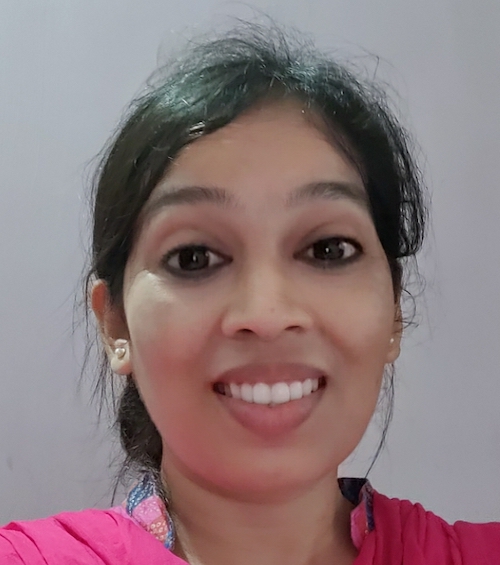 Sujata Jena is a member of the Congregation of the Sacred Hearts of Jesus and Mary. She is a human rights activist, a freelance journalist and an advocate with a special interest for the cause of the poor, Dalits, tribal women, children, minorities and migrants. Since the start of the COVID-19 pandemic, she has been actively involved in the safe return of migrants and continues to work for their rights through advocacy and lobbying through networking with government administrations and civil society groups. Presently, she is working as the deputy director of the Excellent IAS Academy in Bhubaneswar in the eastern Indian state of Odisha. She is the coordinator of the social projects of the congregation.
Sujata Jena is a member of the Congregation of the Sacred Hearts of Jesus and Mary. She is a human rights activist, a freelance journalist and an advocate with a special interest for the cause of the poor, Dalits, tribal women, children, minorities and migrants. Since the start of the COVID-19 pandemic, she has been actively involved in the safe return of migrants and continues to work for their rights through advocacy and lobbying through networking with government administrations and civil society groups. Presently, she is working as the deputy director of the Excellent IAS Academy in Bhubaneswar in the eastern Indian state of Odisha. She is the coordinator of the social projects of the congregation.
A religious community, like every baptized Christian, is a partaker in God's mission. The mission of God is to proclaim the kingdom of love, justice and peace to humanity and the whole of creation.
The charism of my congregation — Sacred Hearts of Jesus and Mary — is to contemplate, live and proclaim God's redeeming love. It calls one to love beyond self and reach out to others with love, acceptance and recognition.
The congregation equips every member with a special holistic formation program. Along with social work, law and missiology studies, this gave me respect for the humanity, culture and religion of others — of utmost importance for a religious living her life doing God's mission with commitment, competence and compassion.
In India, Hindus make up 80% of the population, Muslims 15% and Christians 2.3%. The rest of the population, 2.7%, are other religions. It is challenging to be a good missioner in our country while the ruling party attempts to establish a radical Hindu nation by diluting the secular principle, a fundamental element of the Constitution.
We sisters live in a country where our neighbors, co-workers, taxi drivers and fellow travelers mostly practice a different religion from us. The Second Vatican Council's document on the church's relationship with other religions, Nostra Aetate, affirmed: "The Catholic Church rejects nothing true and holy in other religions."
Sacred Hearts sisters c.jpg
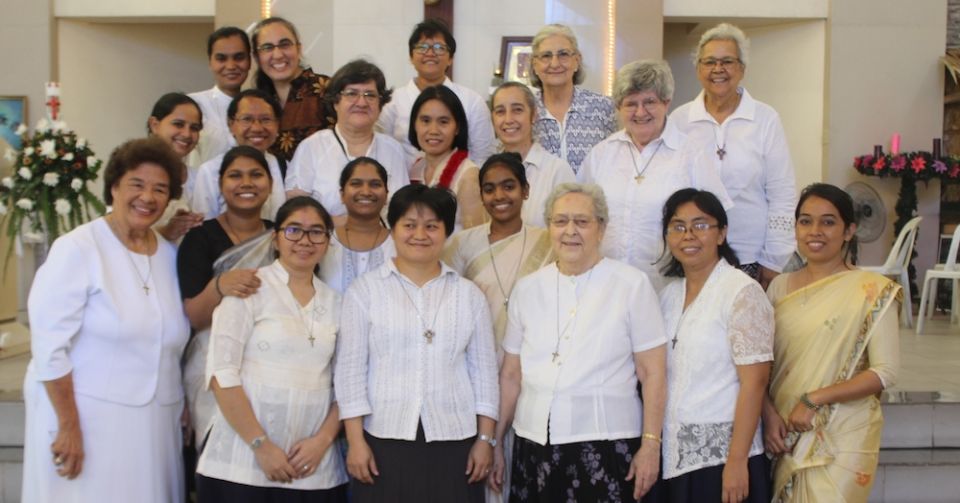
The document insists on the basic human right to freedom of religion, appealing to both Christians and Muslims not only to tolerate the religious faith of the other, but to recognize the other's faith as something "willed by God in his wisdom."
The message seems to be: If God wants religious diversity, who am I to be intolerant?
This focuses us to work among each other effectively. We religious need to be prophets who read the signs of the times and make a bold decision to side with the poor, the oppressed, the weak and the needy, no matter what religion they practice.
The learning from my formative years, studies and engagement with different ministries as a nun have molded me to work in a non-Christian milieu.
First: Nurturing and promoting the theology that God is love. He invites us to share his love with fellow human beings and nature. Salvation is irrespective of one's religion.
Second: Deepening the faith that is rooted in Jesus is my guiding principle. It is an action-oriented reflection: getting out of myself and reaching out to others in a preferential option for the poor, crossing the boundaries of my attitude, behavior, culture, belief, philosophy, ethos and practices.
Third: Appreciating and celebrating the best of every religion, culture and people is not to impose anything of my own onto others, even the belief that I hold firm. It is to be open to the Holy Spirit to reach the other with Gospel values and lead them to the almighty by being a witness to Christ through my life and work.
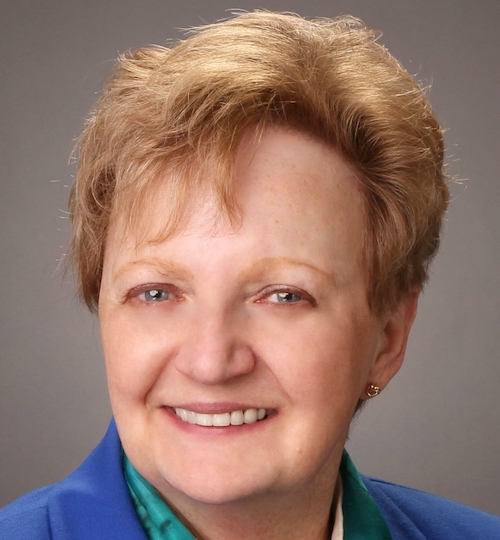 Donna L. Ciangio is a Sister of St. Dominic of Caldwell, New Jersey. With an academic background in fine arts, religious studies, education and ministry, she has been the director (U.S. and international) of Renew International and the director of pastoral services for the National Pastoral Life Center. She has worked extensively in church leadership consultation. Most recently, she has been a university adjunct professor and the chancellor of the Archdiocese of Newark. She speaks, writes and publishes extensively.
Donna L. Ciangio is a Sister of St. Dominic of Caldwell, New Jersey. With an academic background in fine arts, religious studies, education and ministry, she has been the director (U.S. and international) of Renew International and the director of pastoral services for the National Pastoral Life Center. She has worked extensively in church leadership consultation. Most recently, she has been a university adjunct professor and the chancellor of the Archdiocese of Newark. She speaks, writes and publishes extensively.
"Don't neglect to show hospitality, for by doing this some have welcomed angels as guests without knowing it" (Hebrews 13:2).
I grew up in a predominately Jewish neighborhood where all were welcome. We shared Hanukkah and Christmas celebrations, prayers, meals, temple and Mass together with special families. As kids, we took all of this for granted, and of course, our parents set the example, being inclusive of all people. Our home was open to all, especially when my mother was making pasta. Our open door was a hallmark of our family life.
The various ministry opportunities I have had have put me in contact with leaders and members of other faiths. Most of the interactions began with social outreach to people in need. Joining together with a common purpose gave the opportunity to have more casual conversations to get to know each other. More casual conversations turned into inquiries about faith beliefs and focused on similarities rather than differences.
I found that there was great interest in women religious— what we do, why we aren't married with families, why we are not ordained and more. Many people had stereotyped images of women religious as portrayed in the media but soon found out those images are unfair, patronizing and just not true. It was important to me that they understood the work and power of women religious and what we have been able to accomplish throughout the centuries.
Catholic-Jewish group c.JPG
Most recently, a wonderful gift for me has been the opportunity to work with a local Jewish temple. At the time we began the project, I was the adult faith formation director at a local parish. A parishioner introduced me to the adult faith formation coordinator at the temple, and we developed a series of conversations on the Jewish-Christian understanding of such topics as generosity, forgiveness, joy and good works. These were amazingly deep conversations with folks from the temple and my parish, and we found that we had very similar understandings and goals for living our faith and made good friends.
All of this is to say that in our Dominican understanding of truth, compassion, faith and outreach, my community has always been open to others, no matter who they are or what circumstances they are in. This is the legacy of St. Dominic, who walked the countryside speaking gently about Christ to people of different faiths.
Many of our sisters work with or teach students of different faith traditions and cultures. The sisters work in areas of direct service and advocacy for [people victimized by] human trafficking, for recent immigrants and against food insecurity. In our small university, we have students from India, Latin America, African countries, the Caribbean, and nearby towns.
We are all very enriched by living in a very diverse area that is ever-changing as new people move in and need housing, food and other necessities of life. We see our ministry and legacy to work for justice and the needs of all people. We are very blessed by all of these encounters.
Like what you're reading? Sign up for GSR e-newsletters!


